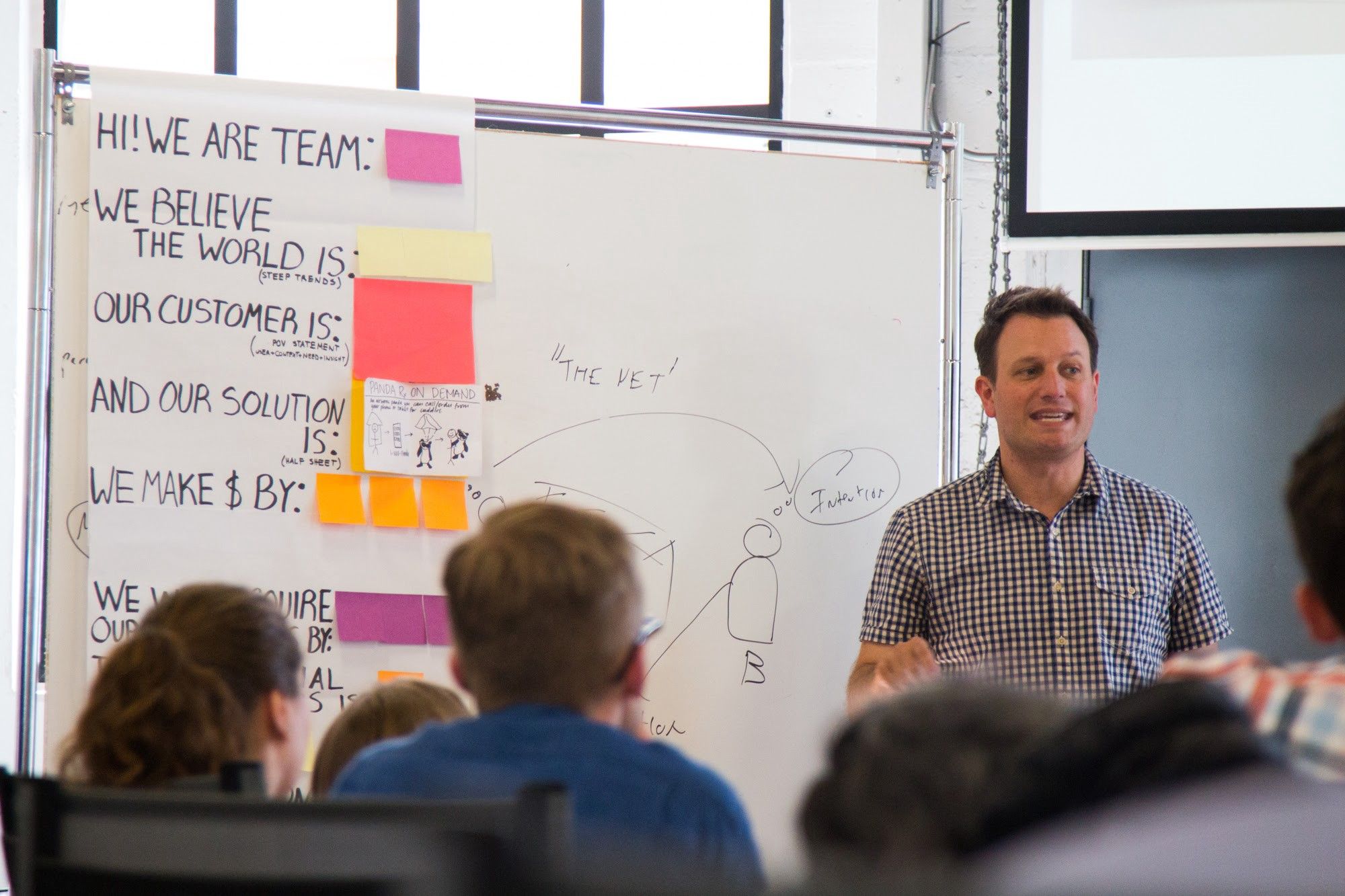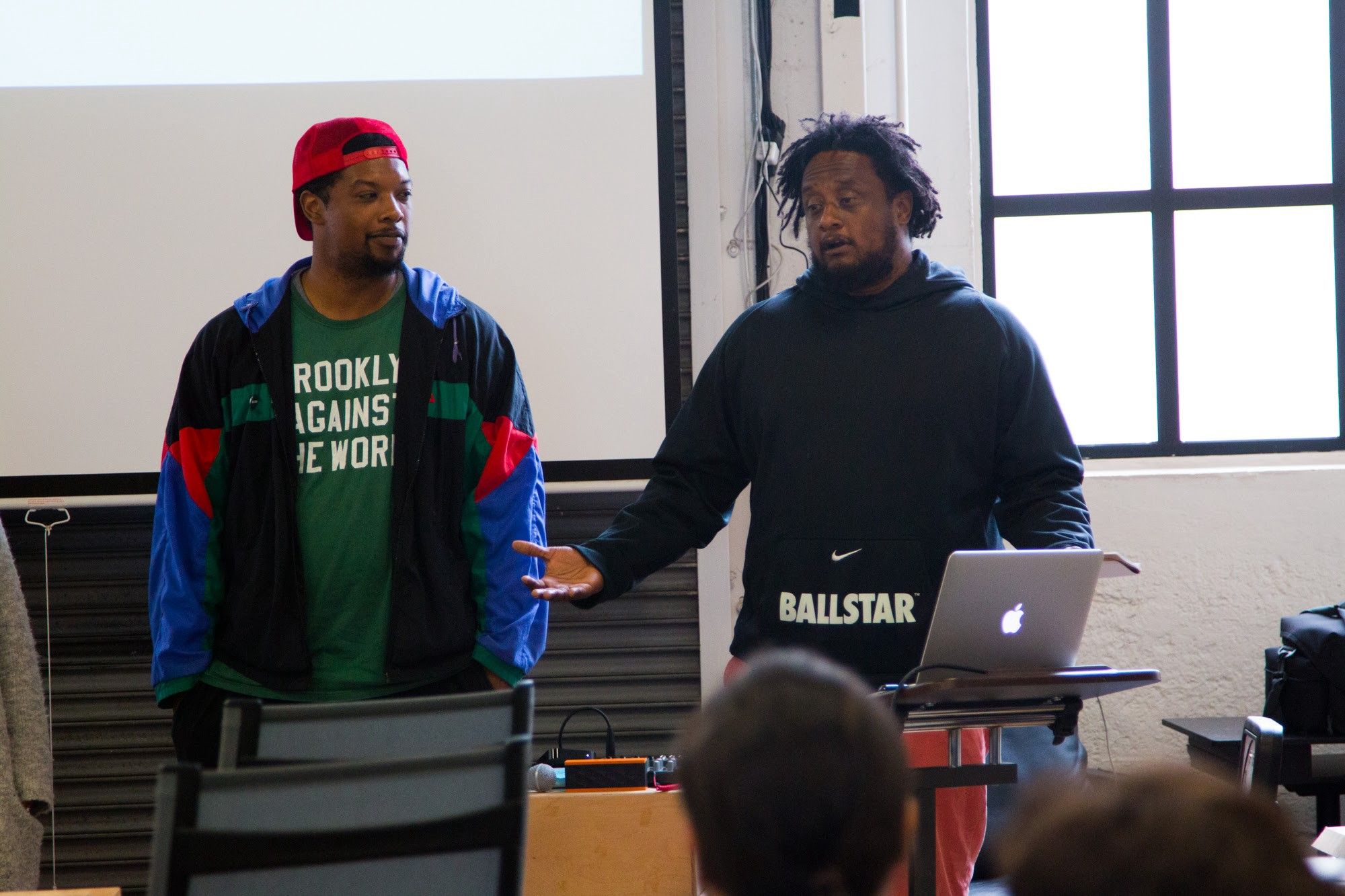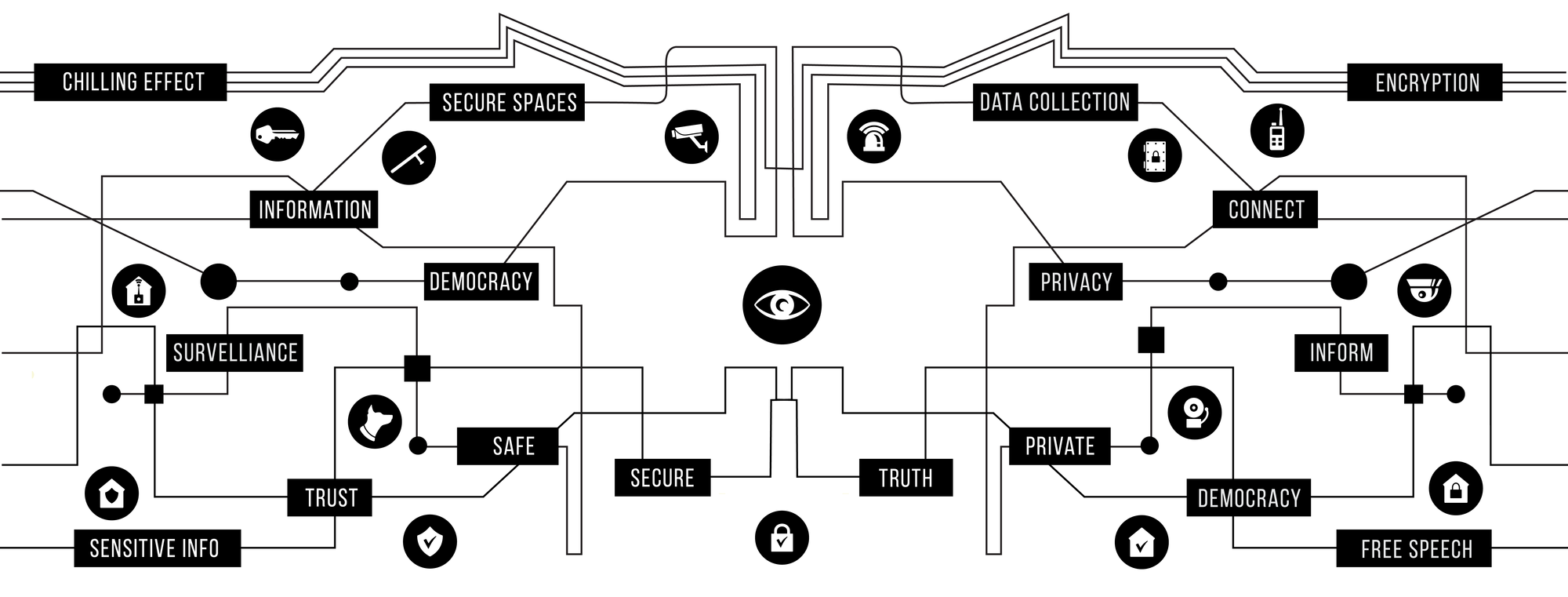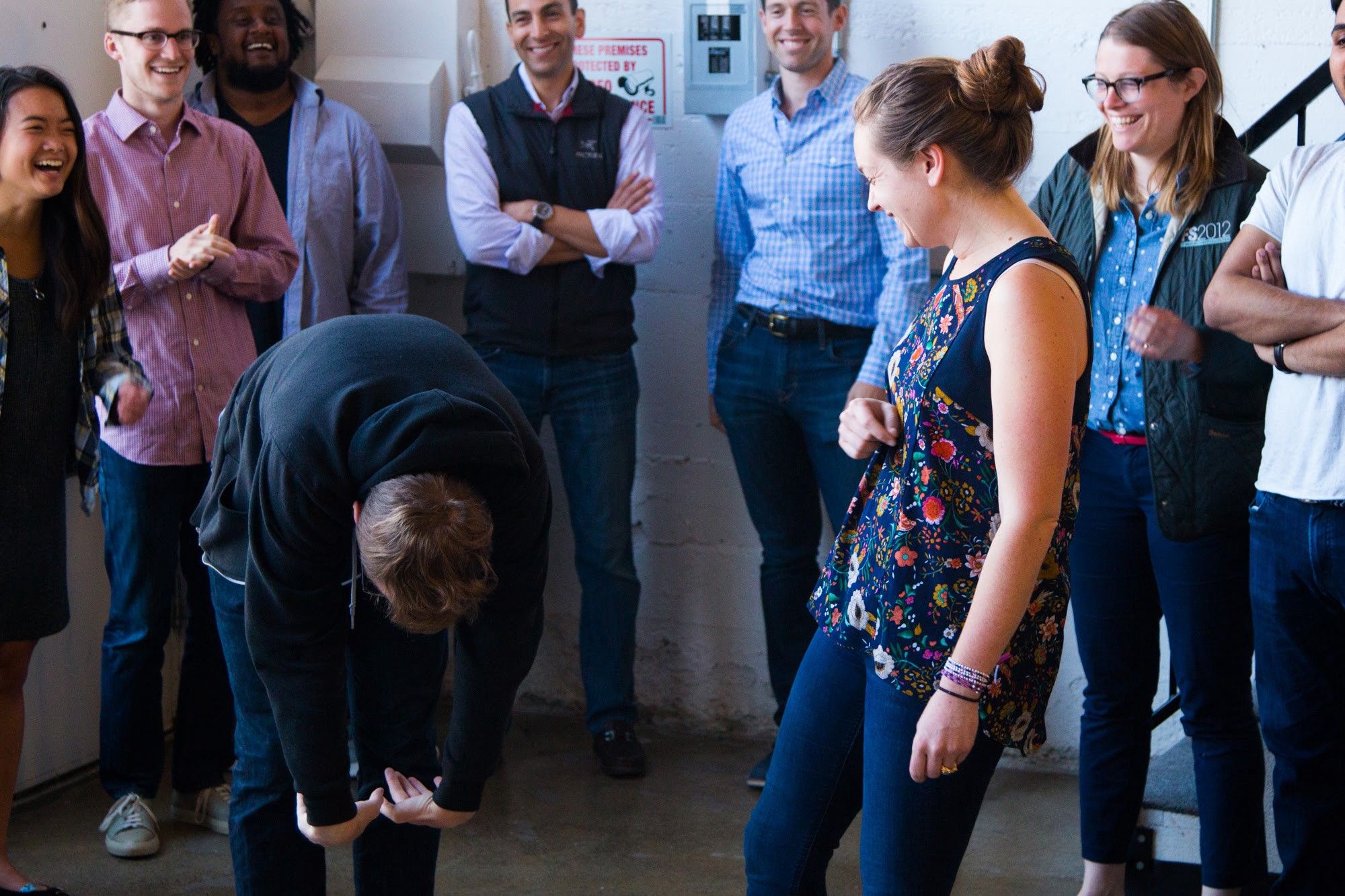Rules for Rebelpreneurs

Top highlight

Journalists are under threat in our country — people don’t trust the news, fake publications and “alternative facts” make it an increasingly burdensome task to identify the truth, and multiple figures in the White House, including the president, have declared the media to be the “Enemy of the People.” We live in a moment in which believing in facts and evidence-based decision-making, in broad democratic access for all citizens, and in the value of global connections and an open, inclusive culture are revolutionary actions. Who knew that reading the newspaper was functionally equivalent to throwing molotov cocktails?
Well, Corey, for one, did. In a piece he wrote recently for Nieman Lab, he argued 2017 would be the year of the rebelpreneur:
The seeds of the next great media institutions will be planted this year by courageous entrepreneurs who make the leap to build ventures that speak truth to power, close the empathy gap, and take a radically inclusive approach to amplifying the voices of all Americans.
Simply building a venture that reflects Matter’s mission is now an act of rebellion against the direction our entire society has taken in its attitudes toward the media and information. We’re no longer looking for entrepreneurs, people who start and run companies. We’re looking for rebels building great companies: Rebelpreneurs.
At the end of 2015, I thought I was joining the team at Matter because entrepreneurs were particularly bright, eager, and action-oriented learners who have an overriding need to take in any skills or techniques that could help them succeed. As it turns out, I’m here to train them how to use their startups to help turn the tide toward celebrating the values of a free press, universal civil rights, and an empathy-driven society. It’s a tremendous opportunity, and the founders I meet and work with every day give me reason to hope, and that this is a moment in which we can turn the tide against 20 years of a declining industry. But it’s a huge change.
In one year, my job has changed from one I believed could have a positive impact on society to one that must have a positive impact on society: coaching dozens of entrepreneurs each year in how to build scalable ventures that can make society more informed, empathetic, and inclusive.
In an era of a citizenry being actively misinformed by political operatives domestic and foreign, distrust of people with different views and lifestyles, and profound momentum to exclude anyone perceived to be other, I’m either deeply delusional about what we can accomplish together, intensely inspired by the scope of the task, or both. Probably both.
As Roxann and I have begun to design the program for Matter Seven, the rules for supporting and accelerating not merely disruptive but openly defiant entrepreneurs have slowly started to emerge. While much of what we do will be familiar to the 43 companies who have come through the doors of the Matter accelerator before, other activities will look new, more sharply in focus. Not all of what’s here will be core to the curriculum, but they are skills the next batch will need to cultivate, and that we’re committed to figuring out how to help with. And it’s only March; this list will grow and change over time.
Take nothing for granted. Know your assumptions. Challenge them.

Assumptions — about the value of a service, the behavior of people, the competitiveness of the market, the feasibility of production — lie at the heart of every new venture. Fundamentally, a startup is a bet on the world that will exist two years from now. Why two years? Because even the most generous investor isn’t going to provide five years of runway to an unproven idea, and because that’s about how long it tends to take to build something that can truly be at product/market fit at the moment a latent trend comes into prominence.
The job of all founders, then, is to identify the critical assumptions upon which their companies rest, test them, and change them in light of new information. In a particularly volatile environment, it’s more critical than ever to surface and challenge these assumptions early in order to build a business that’s resilient or even anti-fragile to sudden shocks. Design Thinking is well-suited to this task, but we also have a clear call to infuse more systems thinking, foresight, and behavioral economics into the mix.
Express your values and beliefs in your venture proudly.

It’s really hard today to tell a story without someone accusing its author of trying to advance a political agenda. The White House has gone so far as to argue that journalists who report stories counter to the narrative appearing on President Trump’s Twitter feed or the talking points of his aides are, in effect, weakening or even betraying the country. While the Washington Post’s former editor Ben Bradlee famously refused to vote for fear of compromising his political objectivity, there is no question that his willingness to publish Woodward and Bernstein would today be seen (and as President Nixon argued then) as politically motivated. Even though everyone involved in that story did so solely because they believed all Americans have the right to know the truth of the actions of their leaders.
This isn’t merely confined to journalism. It’s all of business. Twitter faces sharp criticism for enabling the president to engage directly with his supporters on their platform, though they would surely face even sharper criticism if they removed him from the platform. Either way, their actions are interpreted as support or opposition for the current administration. It’s all political.
Similarly, Nordstrom was specifically attacked by the president for deciding to discontinue carrying the Ivanka Trump lines of clothing and jewelry for what they described as declining sales. His aide Kellyanne Conway then gave a “free commercial” for Ivanka’s products on Fox News. If a business can’t decide which products to carry without risking criticism by the president and his aides, it’s clear we’re in a moment in which it is impossible for businesses to operate in apolitical fashion.
For entrepreneurs, the imperative then is to own your values and beliefs. It’s wrong to interpret every business decision in light of the current political climate. But this misconception highlights a greater truth — every venture is a realization of its founders’ goals in life and society. Startups aren’t just impersonal money-making machines, they’re vehicles for social change — change that will be perceived both positively and negatively. Every business turns off someone through what it seeks to accomplish. It’s more important than ever to know what those values and beliefs at the core of your venture are, to embrace and bake them into culture, product, and strategy, and to be prepared for the criticism that comes along with being an authentic leader.
Make a plan to survive and thrive while the industry and the investment community get caught up to the future.

The tech industry hasn’t fully realized it yet, but we are in a new era of media and technology. People are going to behave differently, new values will emerge, powers will rise and fall. Dominance in the mobile era doesn’t guarantee success in chat, and there’s no guarantee chat will be the dominant paradigm of the coming years.
What is known is that the ability to recognize and adapt strategy and frameworks for investment and development tends to be much slower than the ability for entrepreneurs to recognize and begin developing a newly blossoming opportunity. This is why legendary investors and corporations have a track record of passing on entrepreneurs and intrapreneurs whose assumptions about the future don’t fit their own. HP let Steve Wozniak begin work on Apple as a side project because they didn’t see a future in which the personal computer market would ever amount to much. Everyone but Thiel, Pincus, Hoffman, and WTI passed on Facebook until it was already an undeniable success (with valuation to match).
In the last few years, it’s become even harder to raise a sizable seed round, let alone a Series A, for quality startups led by new founders. Early stage investors who have written huge checks to people with nothing but a deck and a part-time technical founder are now asking for mature traction and revenue levels. For those who are most outside the box of what’s already trendy to fund, this battle is even harder. This doesn’t mean that those founders are wrong about the future, it means they’re seeing something that others can’t yet — and they have the most to gain from their foresight.
Finding the funders who see the world as you do and want to be part of that future will be critical to success for rebelpreneurs. Brilliant angels, mission-aligned seed VCs, and strategic investors all have a big role to play here. The core skill to learn is how to get them out of the woodwork and ready to make a bet while everyone else sits back to see what will succeed a few years down the road. Great startups are a bet on the world that doesn’t exist— it takes visionaries to recognize it when they see it.
Build with security and privacy at the heart of your technology.

Until very recently, strong security and privacy were regarded as the domain of the paranoid, government intelligence organizations, and people living in authoritarian states. People would get mad about Facebook’s new privacy policy, and then go back to using it the next day. Consequently, the dominant communication and publishing platforms on the internet have been caught flat-footed for an era in which, rightly or wrongly, U.S. citizens are concerned that the content of their social media, email, and even their personal messaging accounts could be used against them. With Customs and Border Patrol agents reportedly checking social media accounts at the border, even for citizens, this is not an irrational concern.
The impact has been immediate. In the wake of the election last November, the encrypted messaging platform Signal saw its user base increase by 400% over the next month. This has been no fluke. Every day, I encounter more people I know across the country who have adopted Signal in both personal and professional contexts. This is especially true of anyone doing work that is about strengthening journalism, conducting sensitive investigations, and building businesses for disenfranchised communities. Now VPN usage is making a similar leap in usage, as FCC personal data protections were rolled back just days ago. To make change, you first need to protect yourself, and then do the same for every one of your users going forward.
Public awareness of personal data encryption has reached a tipping point. Signal is just the first visible success built for this era. There will be many more. In fact, it’s quite likely that for both consumer and business services delivered over the Internet, personal privacy protection and strong encryption will become core requirements to success. Twitter, Slack, Facebook, Google, and other giants face having to rearchitect themselves to make the data they hold truly secure and anonymous. Companies starting now have an opportunity to make in-roads against conventionally untouchable giants because of the difficulty of making such changes at scale. These in-roads also need to be made, as there is no room in the market for another communication platform that isn’t inherently secure. This is one of many area that we need to coach and teach about where I can’t overstate how exciting it is to have Ben on our core team.
Inclusion drives change. Monoculture leads to stagnation and collapse.

The data is indisputable: Immigrants start more new companies than native-born citizens do. There are many reasons for this: lack of connections within existing networks to pursue traditional career paths, motivation to build something all one’s own post-relocation, and perhaps an innate trait connected to those willing to leave home in search of a brighter future. But as large a factor, if not a greater one, is the ability to see dynamics in the culture and market that get missed by those who are deeply embedded in the status quo. The well-documented success of immigrants in starting companies is related to the same reason that venture-backed giants often come from the very young: they have little stake in preserving the way things are in the existing market, so they seek opportunity through different ways of doing things.
As I noted earlier, the job of an entrepreneur is to identify and reduce critical risks to the success of their company. These risks take many forms, but the most important other than the team itself is market risk — how desirable what is being built is to a large enough base of customers and users to justify costs and valuation. If your business isn’t solving a real need for a real person, it simply doesn’t have a chance of winning, no matter how strong your tech team is or how clever your monetization model. The wider entrepreneurs can open their apertures for feedback and new information, the more clearly they will understand their market risks and build products that people love.
And there is no better way to widen that aperture and to eliminate blindspots than to assemble a diverse, inclusive team from a wide range of backgrounds, geographies, abilities, income levels, religions, ethnicities, political affiliations, and values. Such a team, united in common goals as a startup, can outperform a team made up of people who all come from one background, who only studied one subject, and who all went to the same university. But assembling an inclusive team and getting them aligned is more challenging than building a team made up solely of people like oneself. It requires great empathy, a commitment to doing things differently, and tools for finding the common ground necessary to unlock the potential of differing perspectives. I can’t wait to help.
Join us. I can’t wait to help guide you on your road from here to product/market fit.

